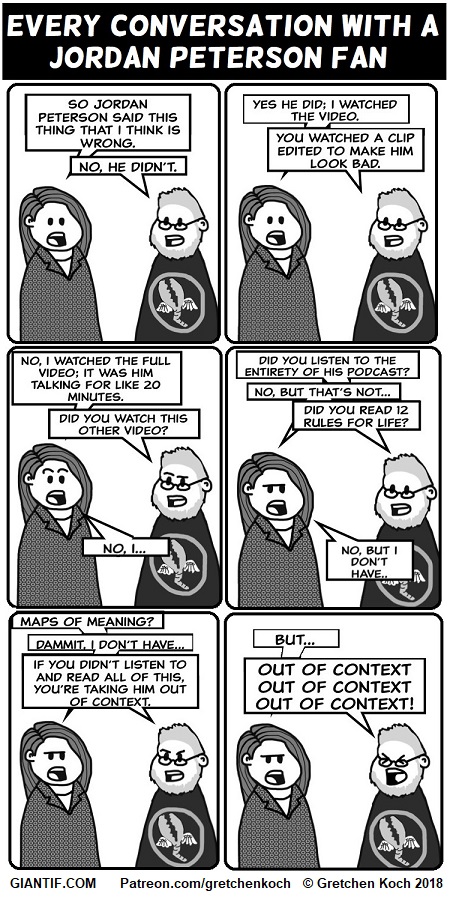Let’s say you’re a member of C. C is a big, non-homogenous group. It’s a group defined by adherence to a mish-mash of not-always-consistent beliefs. That’s how big groups work. That’s how names for big groups work. One obvious question is whether “C†really means anything, given the ideological variation among Cs. But there’s no changing that “C†is the term that gets applied to you and to the C whose view you find ridiculous. That’s a bummer, but that’s life.
Now comes someone, call them G, to single out a subset of C, a subset, by the way, he identifies as a subset, by saying something like “The subset of C with beliefs a, b, c, d, and e†are something or other. Crucially, G doesn’t then draw dark conclusions about other Cs. This would be weak-manning C. To be more precise, weak manning consists in singling out real, but terrible, arguments for scrutiny only then to draw broader conclusions about people who hold different, though related beliefs. In this case, it would be selecting some C-beliefs for scrutiny but then drawing, illegitimately, conclusions about others Cs who don’t hold those beliefs. But G doesn’t do that.
An objection might be that there’s no merit in isolating such a group because their views are uninteresting, or that there exist better versions of their views, or that people will confuse the good ones with the bad ones, thinking the good ones to be the bad ones.
To reply to this. In the first place, it’s certainly true that many hold the version of C under scrutiny. That their views are weak is an important fact (noted by G).
Second, there’s merit, especially to the stronger versions of C, for clearing the decks of the bad views. So, for instance, you’re a member of C, but some members of C hold really appalling views. Getting those views out of the way is not necessarily bad for you. This should be especially inoffensive when the critic explicitly identifies the subclass of C they’re referring to–those Cs over there, not you though.
Another, perhaps stronger, objection is that G ought to know that many will take his criticism of C, despite his specifications and qualifications, to imply that people who fail to distance themselves from C or people who did not notice the badness of C are implicated in the criticism of C. In other words, perhaps G is saying: C is bad, and you know that people confuse you with C, so you are guilty of not saying enough about that. You should be on record as not agreeing with C or aligned with C.
But then again, I’m not really sure that this is even an objection. That may be the whole point of criticizing C after all. C’s association will cost C-ists time and effort. That time and effort expenditure ought to dissuade them from being around C. They should have thought of that. That they didn’t reflects poorly on them and their time management skills.



